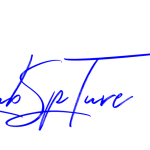DocuSign Advanced Electronic Signature is a term used by DocuSign to describe its highest level of electronic signature functionality, which meets the most stringent legal and compliance requirements worldwide. Advanced Electronic Signatures (AES) offer a level of security and reliability that ensures the authenticity and integrity of signed documents.
key features and characteristics of DocuSign’s Advanced Electronic Signature:
- Compliance: DocuSign Advanced Electronic Signatures comply with the most rigorous international standards and regulations, including eIDAS (Electronic Identification, Authentication and Trust Services) in the European Union, UETA (Uniform Electronic Transactions Act), and ESIGN (Electronic Signatures in Global and National Commerce Act) in the United States. This compliance ensures that signed documents are legally valid and enforceable in court.
- Identity Verification: DocuSign employs advanced identity verification methods to ensure that signatories are who they claim to be. This may include multi-factor authentication, knowledge-based authentication (KBA), SMS verification codes, email verification, and government-issued ID checks. By verifying the identity of signatories, DocuSign helps prevent fraud and unauthorized access to documents.
- Audit Trails: DocuSign creates comprehensive audit trails for every transaction, recording a detailed history of all actions taken on a document, including when it was sent, opened, viewed, signed, and completed. This audit trail provides a tamper-evident record of the signing process, which is crucial for compliance and legal purposes.
- Document Encryption: DocuSign encrypts documents and signatures at rest and in transit using industry-standard encryption protocols. This ensures the confidentiality and integrity of documents throughout the signing process, protecting them from unauthorized access or tampering.
- Certificate-Based Signatures: DocuSign Advanced Electronic Signatures use digital certificates to create unique, cryptographic signatures for each signatory. These digital signatures are based on public key infrastructure (PKI) technology and provide a high level of assurance regarding the authenticity and integrity of signed documents.
- Tamper-Sealed Documents: Once a document is signed using DocuSign Advanced Electronic Signature, it is tamper-sealed to prevent any modifications or alterations. Any attempt to tamper with the document after signing will invalidate the signature and trigger security alerts.
Overall, DocuSign Advanced Electronic Signature provides organizations with a secure, reliable, and legally compliant solution for conducting electronic transactions and signing documents with confidence. It offers the highest level of assurance regarding the authenticity, integrity, and non-repudiation of signed documents, making it suitable for use cases that require the utmost trust and reliability.








Add Comment